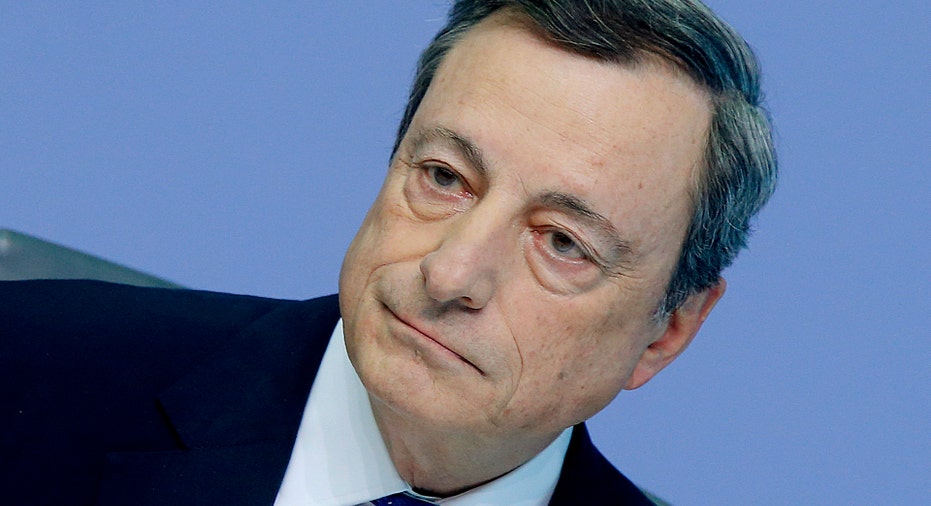ECB chief: Market reforms must promote growth for all

FRANKFURT, Germany – European Central Bank head Mario Draghi says governments must ensure that pro-business reforms create economic benefits for everyone if the changes in worker protections are to find acceptance.
Draghi said in a speech Wednesday that a perception that growth isn't benefiting everyone has "fuelled the belief that some have been 'left behind' by the spread of market forces."
He said countries that loosen worker protections and make hiring more flexible for companies also need to take steps to make jobs more secure and to retrain workers.
Draghi has called repeatedly for countries to step up so-called structural reforms: to reduce bureaucracy, red tape and excessive rules governing business and hiring. He has said the central bank's support for the economy through its stimulus programs gave them a "window of opportunity" to act.
He conceded that the costs of reforms - often short-term - had led some to regard structural reforms as "a bad word." He said that countries that did engage in such reforms during the eurozone debt crisis - such as Spain, Portugal and Italy - had seen unemployment fall. He warned, however, that sometimes making job relationships more flexible led to poorer labor deals for young people, and that labor reforms should also address workers' needs for security.
Draghi spoke at an economic conference convened by the ECB, which conducts monetary policy for the 19 countries that use the euro, to explore how to promote economic reforms in the bloc. While the central bank has pushed for reforms in its public statements, Draghi is careful about mentioning specific countries because of the ECB's status as a politically independent institution whose leaders are appointed, not elected.
Pro-business reforms are getting attention in Europe because France's new president, Emmanuel Macron, is taking steps to loosen France's labor protections. But the topic cuts across the entire eurozone economy. Italy's clogged courts, for instance, make it hard to resolve bankruptcy claims and contract disputes. Even Germany, which has low unemployment and strong growth, has come in for criticism about restrictions on competition among some service providers.
Draghi did not address the future of the bank's stimulus programs, such as its 60 billion euros ($71 billion) per month in bond purchases and zero benchmark interest rate. Decisions on a phase-out of the bond purchases are expected at the next ECB rate meeting Oct. 26.



















